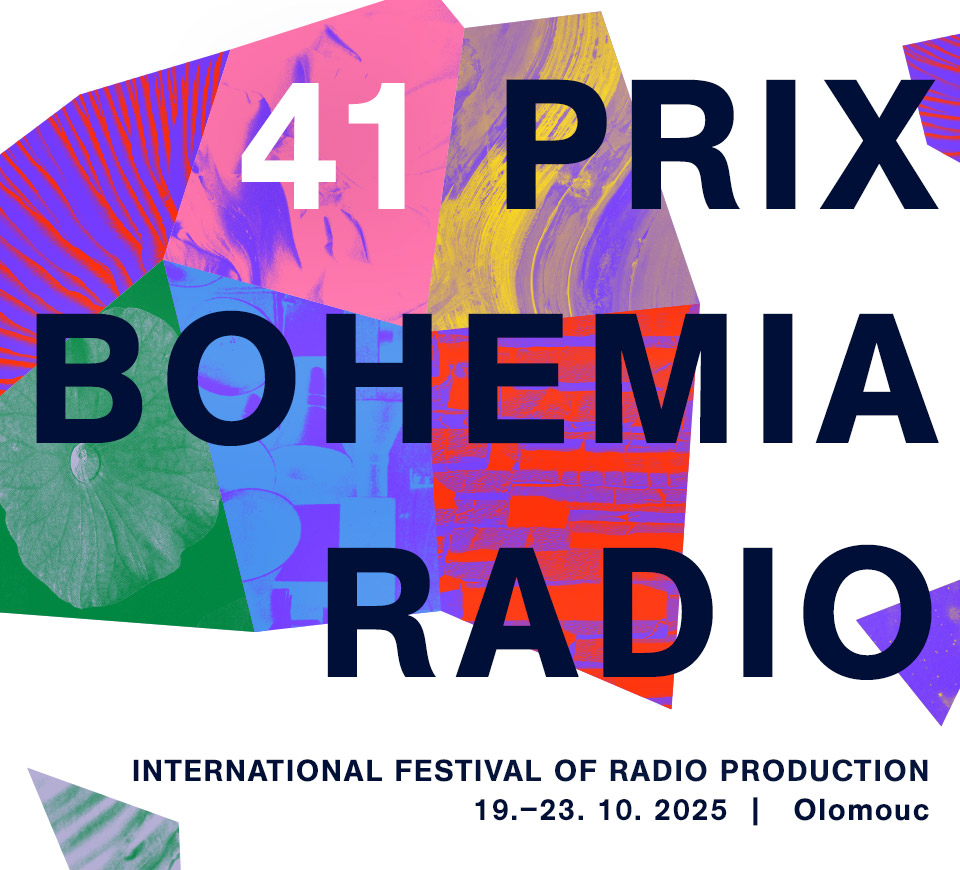Bold New Trends Enter the World of Czech Audio Documentaries
Anti-epidemic measures chased last year’s festival into the virtual world, but this year Prix Bohemia Radio has returned to Olomouc.
Public listening sessions for the Documentary category kicked off the festival’s first day. This year’s jury comprised Eliška Cílková, Tomáš Bojar, Vít Pohanka, and two foreign guests: Grete Strøm and Alia Cassam. Documentary filmmaker Ivan Studený led the discussion.
The pandemic’s presence was still clear this year, even though the 37th festival has returned to the Konvikt building at Palacký University and opened back up for the public. In fact, one of the five jury members could not listen in person because she was sick with Covid-19. However, the listeners in the hall were still able to hear her observations and the justifications behind her contest-finalist picks thanks to her pre-recorded comments.
The first listening block began with Kristýna Břeská’s documentary Šutry v čokoládě [Rocks in Chocolate]. The jurors appreciated the intimacy and tight structure of this documentary centered around a daughter’s efforts to establish a deeper relationship with her father. “Everyone longs for this kind of conversation with a loved one – and Tereza simply tried it,” said Grete Strøm in praise of the documentary’s communicational authenticity.
Tomáš Bojar highlighted its special dedication to the world’s fathers and daughters: “This format has real reach. It can gain the interest of every child and parent.” During the audience discussion, thoughts on the broader possibilities were expressed as well. “In this documentary, the borders between the personal level and manipulation were very thin. They were not crossed, but a few steps more, and the documentary could have become a weapon. In this age, we all can make our own documentaries. It’s important to stay aware of certain borders,” noted audience member (and radio-program director) Tomáš Soldán.
The next two documentaries on the agenda alerted the audience to a growing trend in the Czech podcasting world, which presents works from more than just Czech Radio producers. In the true-crime series Pohřesovaná [Missing] by the Audionaut production group, the jury appreciated the dramatic construction of the entire series and its rawness, authenticity, and emphasis on details that ignite imagination.
“One radical aspect here is the taking-on of survivors’ trauma as a topic. This documentary is brimming with humanity and nice work with emotions,” stated Eliška Cílková as she pointed out how much it differed from other true-crime series. Producer Dagmar Sedláčková, representing the team behind Pohřešované, emphasized that suppressing any kind of “tabloid” feel by offering multiple viewpoints for every event was fundamental in their work.
The second series representing the Audionaut production group was the true-horror documentary Anatomie strachu [Anatomy of Fear] by Brit Jensen and Petr Slavičinský. Under the festival rules, only one work in a series can be played on one listening day, so the audience in the hall heard the episode entitled Radio. The expert and student juries agreed that this episode was stirring, engaging, and simultaneously disturbing.
Grete Strøm said of it, “Pure ‘radio art.’ Listening was like sailing in a magical world where you must wonder whether fiction or reality is around you. Fascinating.” Alia Cassam noted how tightly designed each episode was: building a compact format in just ten minutes that was able to touch the listener with its honesty and closeness.
Andrea Hanáčková – a documentary author and the representative of Palacký University’s Film and Theater Studies department – then tied in to this: “I greatly appreciate the Audionaut group for creating this daring series built on situation narration and striking sound design. The authors’ conscious resignation towards explaining causes and consequences brings a focus on the animal aspect of fear, amplifying the listener’s experience.”
Meanwhile the first two parts of the afternoon listening block were met with mixed audience reactions. Reactions to Miroslav Buriánek’s Intuitivní fotografie [Intuitive Photographs] oscillated between the joy of listening and the feeling that it needed a better-formed, better-formulated story.
The author had his own wry reply: “I learned that compared to the previous programs played today, I’m a slowdown. There were lots of materials and a lot left to shorten, but I’d hit the wall.”
The last documentary of the day was a part of Bronislava Janečková’s trilogy Té noci pes neštěkal [No Dog Barked That Night]. The expert jury praised the excellently led interview at its core, the fantastically handled dramaturgy and the precision of its final form. The entire documentary and the circumstances behind its creation were also accompanied by highly emotionally charged events. From the unsolved murder of the interviewee’s husband to related mental-health problems that culminated in her suicide. The discussion’s topics turned back around to the true-crime trend, and one listener question considered whether a new category should be introduced for this format in the future.
At the very end of the day, the student jury’s award was presented to Tereza Reková for her documentary Moje kamarádka Zuzka [My Friend Zuzka], about the life of a person with cancer. Daniel Kupišovský accepted the award in the absence of Reková herself and could at least provide a short telephone call. We will learn the expert jury’s choice of winner during the festival’s closing gala on Thursday.










